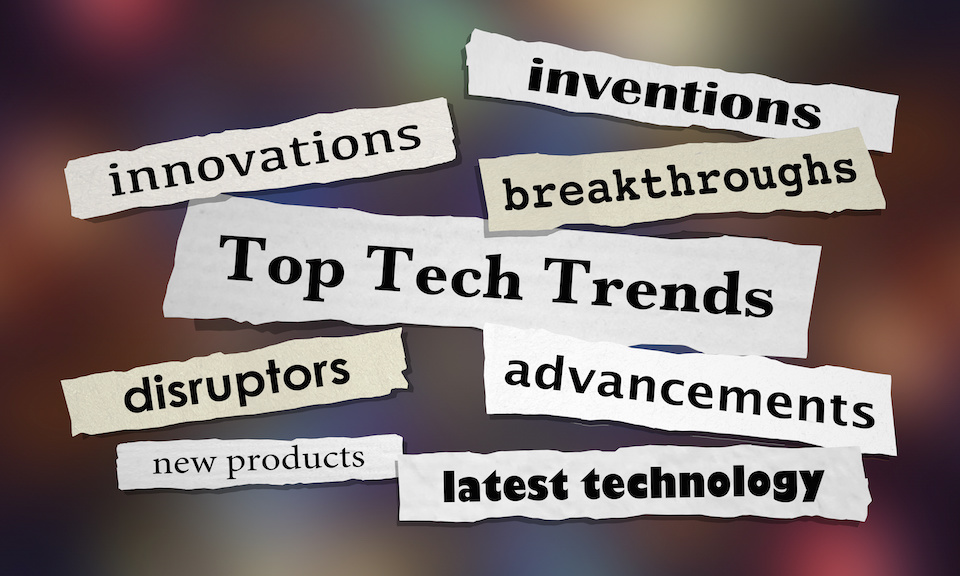The year in review: 2022’s biggest tech stories

It’s that time of year again: the festive season now brings with it a season of listicles and top tens... Love them or hate them, here’s the Grant McGregor rundown of the top tech stories of 2022.
Undoubtedly, the tech story that generated the most noise in 2022 was Elon Musk’s takeover of Twitter. The ramifications of that purchase have yet to be played out but, for sheer spectacle alone (the billionaire carrying a kitchen sink into the Twitter offices) it has to make our list.
Read on to discover which other tech stories that have been engaging the Grant McGregor team through 2022 made our list.
#1. The Russian invasion of Ukraine began in cyberspace
Back in January, the year started with the UK’s National Cyber Security Centre (NCSC) warning of increased risk of state-sponsored cybercrime as Vladimir Putin amassed Russian troops on the border of Ukraine. Even as Russian-backed hackers took out key Ukrainian infrastructure targets, some commentators refused to accept the imminence of the Russian invasion. Sadly, we soon realised that the cyber terrorism was a prelude to full scale war.
NCSC continues to warn of increased risk of state-sponsored cybercrime. We can only hope that 2023 doesn’t begin in the same way and that China’s noise about Taiwan is just noise. Whatever comes to pass, if you haven’t strengthened your own organisation’s cyber defences, it’s time to do it now. Here’s our guide on what to do.
#2. Facebook’s number of daily users declines
In February, Facebook published its 2021 Q4 earnings report. It revealed that, for the first time in its history, Facebook’s number of daily active users was in decline. It also posted a $10 billion loss from its Metaverse business. The resulting stock price loss(1) wiped $240 billion off Meta’s value – the biggest one-day loss for a company in the USA. The year continued in a similar vein, with the Guardian asking “is Facebook losing its $100bn gamble on virtual reality? …what has it got to show for it, apart from 11,000 job losses?”
It’s thought that the changes made by Apple to protect its users’ privacy from Facebook tracking algorithms has affected advertising revenues for the brand. Many brands have complained that, following Apple’s changes, their ads have not been as effective. But the drop in active user numbers also reflects a change in our social media habits.
#3. The growth of TikTok
TikTok has over 1 billion monthly users worldwide, including around 70 million monthly active users in the USA and, as of January 2022, 8.9 million active users in the UK(2).
As users have switched, so have advertisers. The New York Times reported, “TikTok was once best known for viral dance videos and pop songs. But in recent years, the app — which is owned by China’s ByteDance — has also built itself into a digital advertising juggernaut, selling access to its growing internet foothold to brands and developing products that make it easier to advertise on the platform. This year, TikTok is on track to make nearly $10 billion in ad revenue, more than double what it generated last year.”
Western Intelligence agencies are beginning to warn about the threat of so much user data being in the hands of the Chinese State. Given what we know about the use of Facebook to facilitate foreign-state election interference in western elections, it is a warning that we should probably be taking more seriously.
4. Business tried to reverse the remote-working trend
In April, Google kicked off a media storm with its insistence that workers return to the office. Seemingly, the pandemic-era demonstration that remote working could not only work but even be advantageous in some circumstances was not a lesson that the big tech giants wanted to learn for long. And, strangely, over the year it was the virtual businesses (and Elon Musk) that shouted loudest for a return to the office.
Meanwhile, other employers were recognising that the genie was out of the proverbial bottle. And, given the well documented skills gaps across our economy, offering remote and hybrid working still has a lot to offer in terms of attracting and retaining talent.
#5. The EU leads the way in digital protections
April was also the month when political agreement was reached on the Digital Services Act. The Act was one of three major pieces of EU legislative initiatives in 2022 designed to rein in big tech.
The European Commission proposed two legislative initiatives to upgrade the rules governing digital services in the EU: the Digital Services Act (DSA) and the Digital Markets Act (DMA).
Then, in October, it announced the common charger law(3). As wireless charging becomes more prevalent, the European Commission will harmonise interoperability requirements to avoid having a negative impact on consumers and the environment.
The re-use of chargers and will help consumers save up to 250 million euro a year on unnecessary charger purchases. Disposed of and unused chargers account for about 11 000 tonnes of e-waste annually in the EU. From 2024, a USB Type-C port will be the new standard for portable devices, so buyers will be able to choose whether to purchase a new device with or without a charging device.
#6. The takeover of Twitter
With somewhat less positive auguries, October also saw the world’s richest man, Elon Musk, complete his $44bn acquisition of Twitter(4). It inspired a flurry of warnings from politicians and campaigners that hate speech on the platform must be held in check. Early signs have not been good: top executives were sacked, the workforce slashed, controversial figures were let back onto the platform and what few controls were in place appeared to be converted to money-making schemes rather than checks on authenticity and veracity.
The ensuing chaos seems to underline the need for a complete overhaul of the way we think about and regulate social media platforms.
#7. Crypto boom… and bust?
Crypto did not have a good 2022. It is estimated that through 2022, crypto-currency investors have lost around $2 trillion since the industry’s peak in 2021. The demise of crypto was most dramatically underscored by the arrest just last week of the disgraced founder of the cryptocurrency exchange FTX, Sam Bankman-Fried. He stands accused of secretly using $10 billion of customer funds to finance his private projects.
The bankruptcy of FTX appears to be the largest corporate failure of 2022. And, for customers, there is little legal precedent about how they might fare in a crypto bankruptcy when there simply isn’t enough money to go around. The spectacle raises deeper questions about the crypto industry. Through blockchain, digital ledgers were supposed to deliver the kind of transparency that negated the need for banks – an argument which has been fundamentally rebutted now.
What next?
Do you agree? Which tech stories of 2022 resonated with you? What have we missed that got you talking? We’d love to hear your comments.
Plus, if you have any questions about any of the technology discussed in this article, please reach out to our team. We’re always happy to answer your questions.
Call us: 0808 164 4142
Message us: https://www.grantmcgregor.co.uk/contact-us/
Elsewhere on our blog:
Find more information about the war in Ukraine and what it means for your cyber security here.
Read more about NCSC warnings about Chinese-sponsored cyber activity here.
And find out about the EU’s digital markets act and digital services act here.
Sources:
1. https://www.theguardian.com/technology/2022/oct/26/meta-earnings-report-facebook-stocks
2. https://www.statista.com/statistics/1125306/tiktok-monthly-active-users-uk/
3. https://www.europarl.europa.eu/news/en/press-room/20220930IPR41928/long-awaited-common-charger-for-mobile-devices-will-be-a-reality-in-2024
4. https://www.theguardian.com/technology/2022/oct/28/elon-musk-twitter-hate-speech-concerns-stock-exchange-deal




